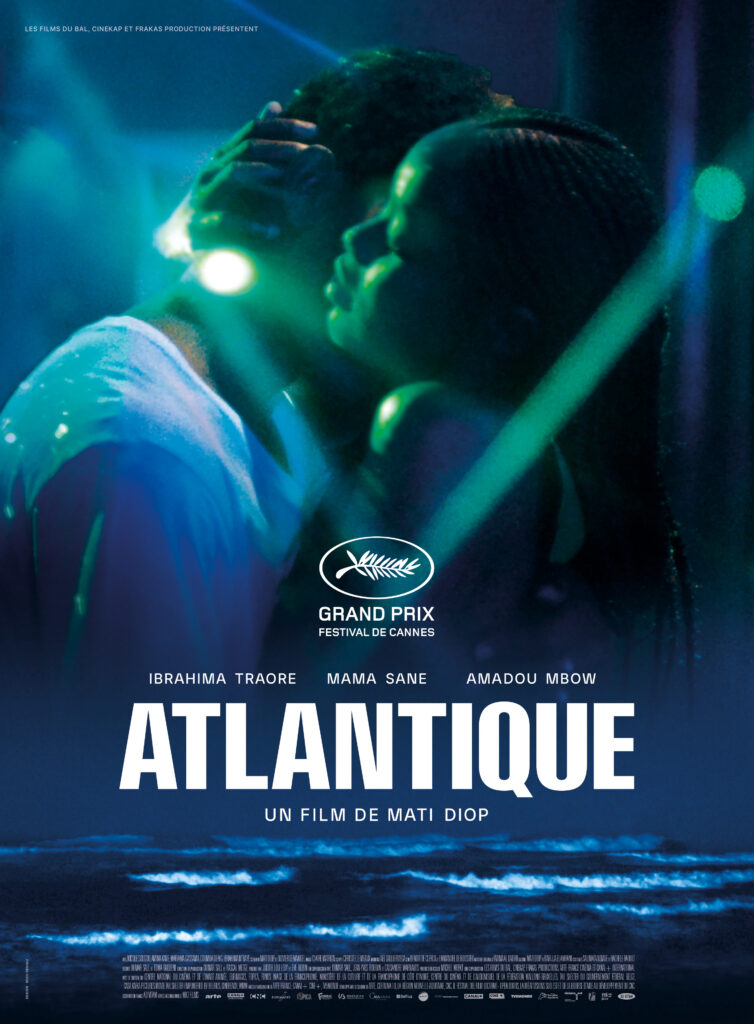Atlantics Christian Review

When you sit down to watch Atlantics (2019), Mati Diop’s cinematic debut, you’re not just watching a movie—you’re being pulled into an ocean of mixed genres, deep feelings, and haunting visuals. But how does this film—a blend of ghost stories, love, death, and the modern clash between tradition and progress—sit with a Christian perspective? Let’s dive deeper into that. It’s not as simple as labeling the movie “good” or “bad.” In fact, it might leave you in a fog, wondering how you’re supposed to feel about the spiritual undertones that bubble under the surface.
The Dead Don’t Stay Dead
First off, we have to address the supernatural element, because in Atlantics, the dead don’t just disappear quietly into the night. Nope. Instead, they rise back up and take over the bodies of the living to settle their scores, which, from a Christian standpoint, might feel like a slap in the face to what we understand about the afterlife. The Bible paints a pretty clear picture of the spiritual world—it’s not exactly a free-for-all where spirits can come back for unfinished business (Hebrews 9:27).
So, what do we do with this? Should we throw our hands up and dismiss the film entirely? Not necessarily. Atlantics uses these supernatural moments to represent something deeper than mere ghostly revenge. It’s the haunting realization that Senegal’s men, the ones who risk their lives at sea for a better future, often die without anyone really caring about their fate. Diop’s ghosts aren’t just spirits—they’re the neglected, the forgotten, the exploited, and isn’t there something distinctly Christian about remembering the oppressed? Christ himself made it clear that we are to care for the marginalized (Matthew 25:40). Diop gives these men their voice back, and while the method might be through magical realism, the underlying truth of injustice resonates.
Ada’s Journey and Redemption
The film centers on Ada, a young woman torn between duty and desire, tradition and modernity. She’s engaged to a wealthy man, but her heart belongs to Souleiman, one of the many men lost at sea. While the dead men may return, Souleiman’s fate is sealed. Or is it?
Ada’s story mirrors something deeply familiar to Christians—the journey of redemption. She’s lost, not just in the sense of mourning her love, but in her role as a woman in a society that expects her to be one thing while her heart longs for something else. We’ve all been there, right? Caught between the demands of society and the pull of something truer, deeper, more real. Ada’s empowerment doesn’t come through force or rebellion—it comes through an internal shift. By the end, she’s a new creation, transformed, much like the Christian call to personal transformation (Romans 12:2).
But here’s where it gets tricky. What do we do with the fact that part of Ada’s transformation happens because of the spirits of the dead? From a Christian view, we believe in the Holy Spirit’s transformative power, not the intervention of souls who didn’t quite make it to the afterlife. There’s no denying the tension here. Yet, Diop’s narrative can still evoke a sense of personal empowerment and redemption that feels familiar to the Christian soul, even if the route it takes is unconventional.
The Value of a Life
If there’s one thing Atlantics makes you think about, it’s the value of a life. The film digs deep into the question of what lives are worth—particularly the lives of the forgotten men and the women left behind. In Christianity, this question is central. We’re all made in the image of God, which gives every person infinite worth, no matter how invisible they may seem to the world (Genesis 1:27). Diop taps into this truth in her own way, portraying the dignity and the humanity of those who are often pushed to the margins.
When the spirits of these lost men rise to claim justice, it’s not just about revenge. It’s about restoring the worth that was denied them in life. And while the Christian faith doesn’t hold to the idea of the dead avenging themselves, the underlying cry for justice feels undeniably biblical. God is, after all, a God of justice, and the Bible constantly speaks of his desire for the oppressed to be lifted up (Psalm 82:3).
In that sense, Atlantics isn’t just a ghost story or a love story—it’s a story about the kingdom of God, in a way. A place where the last shall be first, and the forgotten are remembered. Sure, the film’s method of achieving this doesn’t align with Christian theology, but the heart of the message—the value of human life and the cry for justice—resonates with the Gospel.
The Collision of Old and New
One of the things Atlantics does beautifully is its portrayal of Senegal caught between two worlds—the ancient, traditional beliefs and the modern, globalized reality. This tension is everywhere, from the cell phones to the religious superstitions that persist. For Christians, this push-pull between the old and the new isn’t foreign. We live in a world constantly evolving, yet our faith holds onto eternal truths that don’t change (Hebrews 13:8).
Diop weaves these contrasting forces together in a way that feels both natural and surreal. The spirits may represent old superstitions, but they live in a world of skyscrapers and smartphones. For Christian viewers, this might feel disorienting, but it’s also a reminder that we live in a world where faith and modernity collide daily. It’s not always neat, and it’s certainly not always easy to navigate.
Wrestling with the Supernatural
And here’s where it gets sticky again—the supernatural elements. As Christians, we’re taught to be wary of anything that smells like magic, spirits, or necromancy (Deuteronomy 18:10-12). And Atlantics is drenched in it. The idea that spirits could come back to inhabit the living and make demands doesn’t fit into a Christian worldview. Period.
But here’s the thing: Atlantics is working in the realm of metaphor, not doctrine. Diop isn’t telling us to believe in vengeful spirits. She’s using this as a vehicle to explore grief, loss, and justice in a culture where these beliefs persist. Does that make it more palatable for Christian viewers? Maybe. Maybe not. It depends on how comfortable you are with separating the metaphor from the message.
A Stunning, Troubling, Beautiful Film
So, where does that leave us? Atlantics is a stunning film, no doubt. The visuals alone are mesmerizing, and the story—it sticks with you. But as a Christian viewer, you’ll likely find yourself wrestling with the supernatural elements and the portrayal of the dead coming back for justice. The film’s message about the value of human life, the cry for justice, and the power of redemption are themes that Christians can embrace, even if the way they’re presented doesn’t line up perfectly with biblical teachings.
In the end, Atlantics is a movie that will challenge you—visually, emotionally, and spiritually. It’s not a film that fits neatly into any box, Christian or otherwise. And maybe that’s part of its power. It leaves you questioning, thinking, and, perhaps, a little haunted.
Rating: 7/10—A visually striking and emotionally rich film, but its spiritual themes may pose challenges for Christian audiences.





